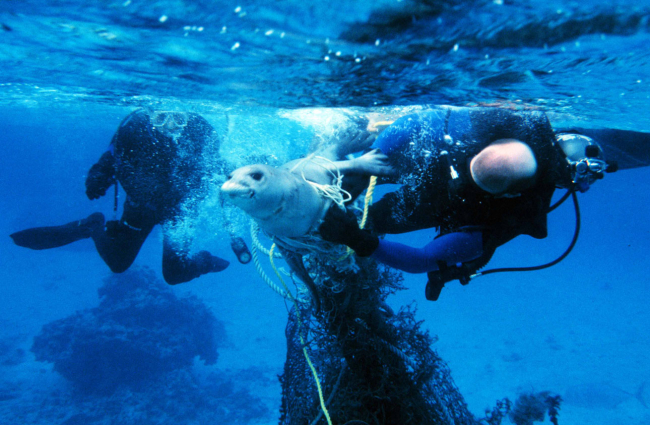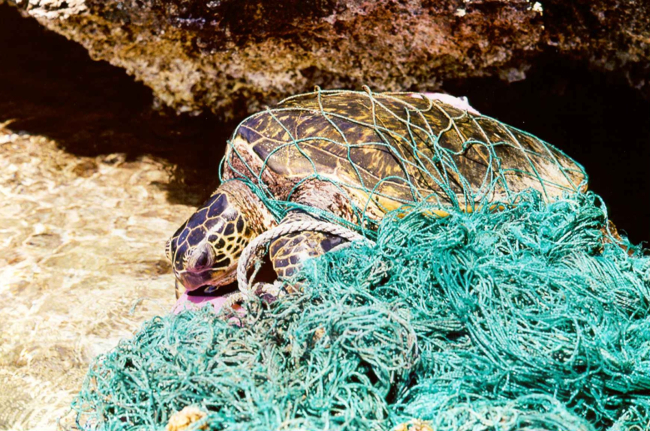Derelict fishing gear is haunting our oceans and harming marine life! The term “ghost gear” refers to any abandoned or discarded fishing gear in the marine environment. In its afterlife ghost gear continues to fish. This ongoing threat includes derelict fishing nets, traps, and pots that continue to trap animals, entangle marine life, smother habitats, and act as a hazard to navigation.
Once fishing gear is out of the control of the fisherman, it has the potential to harm animals that are not meant to be caught. It can be especially harmful to vulnerable wildlife, such as endangered and protected species, including turtles and marine mammals. According to a report published by the NOAA Marine Debris Program, the most common types of derelict fishing gear to ghost fish are gillnets and pots or traps, but other types of fishing gear, such as longlines and trawls, can also ghost fish if they are lost or discarded. This ghost gear can also collide and entangle with other gear, creating larger and larger masses of nets, buoys, and lines.
Ghost fishing can also impact our economy. Lost lines, nets, and traps not only cost fishers money to replace, but can also compete with active fishing gear. As part of a study funded by the NOAA Marine Debris Program, a team of researchers found that 3.3 million blue crabs are killed in derelict crab pots in the Chesapeake Bay, as well as more than 40 species of fish that are not the target of the traps. Using a model, the researchers found that by removing derelict crab pots from some of the most popular fishing areas in the bay, harvest of blue crabs could be increased by 38 million pounds.
Luckily, ghost fishing and entanglement by other marine debris can be prevented. The NOAA Marine Debris Program has partnered with fishers and organizations across the United States to remove existing derelict fishing gear and prevent the introduction of new gear into the environment. In Washington, the Innerspace Exploration Team is leading derelict crab trap removal efforts. The Mississippi Commercial Fisheries United is incentivizing marine debris removal in the Gulf of Mexico and Hawai‘i Pacific University implemented a bounty for derelict fishing gear. With funding provided by the Bipartisan Infrastructure Law, National Fish and Wildlife Foundation is removing derelict fishing gear and other large shoreline debris from the islets and atolls of Papahānaumokuākea Marine National Monument. The Center for Coastal Studies is leading a new coalition across the northeast of nongovernmental organizations and commercial enterprises.
This Halloween, we’re calling on you to be a ghost gear buster in your community. Learn how you can help stop marine debris on our How to Help page. Recreational fishers and boaters can be especially helpful on the water. If there’s something strange in your neighborhood, who are you going to call? Your Marine Debris Program Regional Coordinators! They have information on where to recycle derelict fishing gear in your area.


